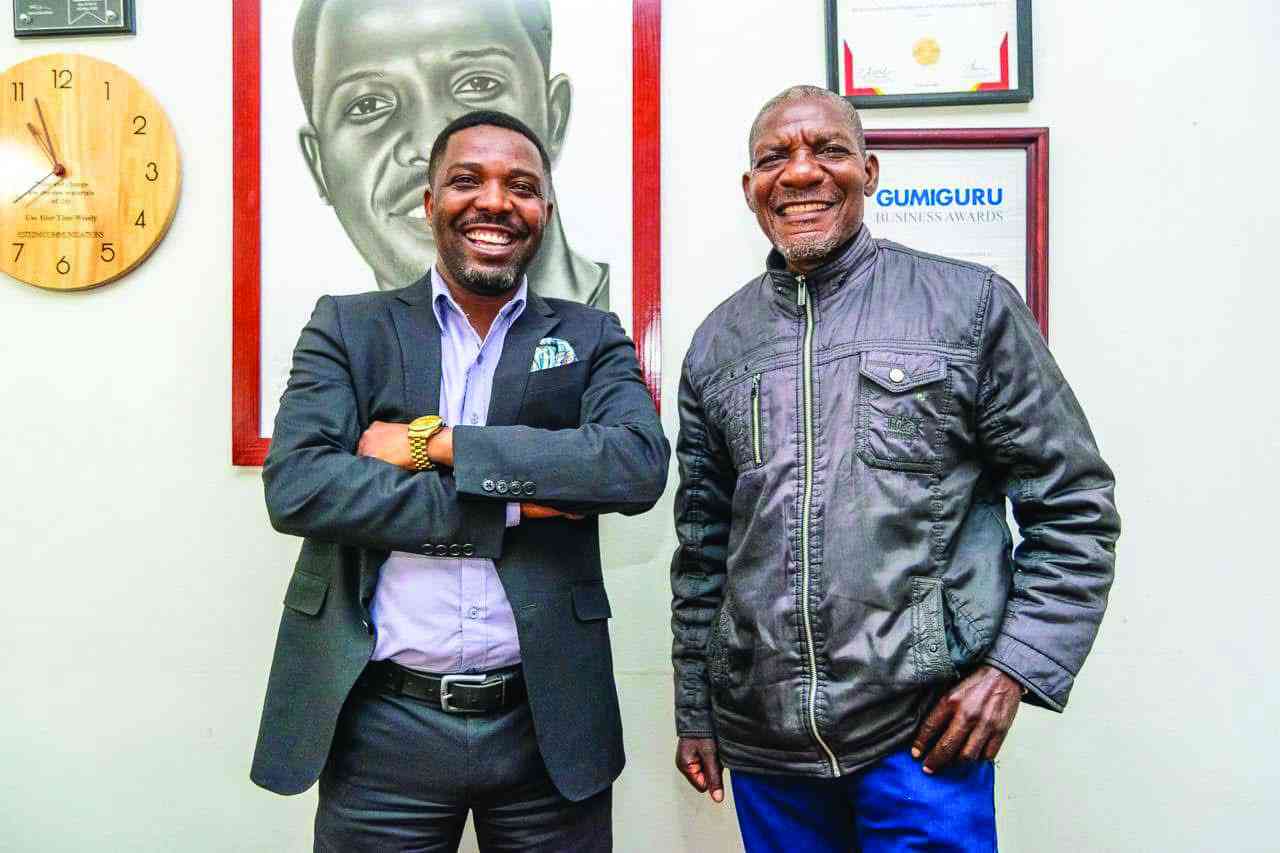
By Fungayi Sox Who will write the Big Saturday Read (BSR) for us?
Who will connect the dots and dissect complex legal, political, socio-economic issues in simple and understandable language to us?
In fact, how does one write a tribute/obituary in honour one of the greatest wordsmiths of our time?
When the news of his passing on filtered in, like many, I was caught unaware and could not believe that the great academic, law lecturer and prolific wordsmith Alex “Musaigwa” Magaisa was no more.
My mind quickly raced to the BSR and how I had been looking forward to his next offering, which I suspected would possibly unpack the legal and procedural complexities associated with the Pomona deal.
Although I never knew him personally, it felt like I knew him as I had been an ardent fan of the BSR in which he wrote hundreds of articles dissecting trending issues ranging from politics and law as well as socio-economic developments in Zimbabwe as they related to law.
He would always humbly sign off as WaMagaisa and to me that was a symbolic gesture, which made his BSR relate and connect with the ordinary person who followed it.
The fact that sometime in March this year, Alpha Media Holdings chairman Trevor Ncube tweeted WaMagaisa’s criticism of him in an article that had been published by NewsDay titled “Turning from the regime while gaslighting the opposition” proves to me not only Ncube’s commitment to free speech, but how his (WaMagaisa’s) views were respected in so many circles.
- Chamisa under fire over US$120K donation
- Mavhunga puts DeMbare into Chibuku quarterfinals
- Pension funds bet on Cabora Bassa oilfields
- Councils defy govt fire tender directive
Keep Reading
WaMagaisa was a lot of things to many people and one cannot ignore the impact and global reach which his blog The Big Saturday Read made especially between the period 2017 up until his untimely demise last Sunday.
To me he was a leader — a thought leader who held no title — and this is demonstrated by how he always proffered solutions through his ink which would in many instances unpack the complexities of the abrupt proclamations of statutory instruments and decrees by the Zimbabwean government.
A good example is his last BSR, which was titled Presidential Decree–A Bout of Economic Madness and a Cocktail of Illegalities, which was published on May 13, 2022.
The BSR followed the Presidential proclamation which suspended banks from lending among a whole lot of other measures which sent the economy into panic.
That article alone simplified the proclaimed economic measures, and proved how the government was failing to instil confidence in the Zimbabwean dollar.
His BSR offerings were endowed with rich anecdotes and metaphors with several stories which made it easy for the ordinary person to easily connect Zimbabwe’s complex dots–and his last BSR in particular urged the government to take a metaphorical cue from how the economy at Chikurubi Maximum Prison worked.
A week later, the government reversed the cocktail of it’s own proclamation and one cannot ignore such intellectual prowess.
For the purposes of this article — I will share and critique my key takeaways from some of his most popular BSR and analyse some of his personality traits.
Magaisa the thought-leader
Throughout the course of the political developments of the past few years, beginning in November 2017, WaMagaisa emerged as a thought-leader.
As Zimbabweans marched onto the street, desperate for former President Robert Mugabe to step down, Magaisa wrote a BSR entitled Presidential Impeachment in Zimbabwe.
In the BSR, he emphasised that although Zimbabweans were eager to see Mugabe’s departure after a 37-year stint in power, it was important to follow proper procedure as that would set precedence for the future. He urged relevant players at the time to be patient and follow through the process. He would impartially air out opinion and connect the dots through referring to the constitution as his bible whenever the country found itself facing a constitutional crisis of some sort.
When Mamvura drove the bus This is undoubtedly one of WaMagaisa’s most popular read. Here he narrated of one Mamvura who from time to time would threaten that if he got the chance, he would drive one of the buses that stopped at Sadza growth point on their way to Buhera or back to Harare. People would laugh and dismiss him. However, one day, when everyone least expected it, Mamvura climbed into the driver’s seat and drove the bus.
This BSR story probably proved popular and inspirational because of a number of reasons;
- Firstly, because of how Mamvura could be a metaphor of bad governance which had characterised Zimbabwe’s political landscape for decades.
- Secondly, how Mamvura could also represent an unforeseen change of guard in leadership and how despite the economic gloom, one day a Mamvura might drive the bus.
- Thirdly, it’s a story that re-ignites hope to the hopeless and teaches us that even if the ordinary person dreamt big, they would turn their dreams into reality.
- Finally, that action speaks louder than words, and in life people will only take you seriously if you act on and achieve your dreams.
A voice of the poor It is beyond any shadow of doubt that the exclusive BSR on farm mechanisation beneficiaries, which was published sometime in July 2020 remains one of WaMagaisa’s most popular BSR as it sent shockwaves to the corridors of power.
Firstly, how WaMagaisa managed to unmask the names of the beneficiaries on the list remains a mystery and proves his genius in holding the government accountable.
And how the ruling party issued a press statement arguing that the scheme was subsidised and therefore there was no need to pay back the loans is testament to the fact that indeed WaMagaisa went an extra-mile in connecting the dots through the ink.
In publishing the beneficiaries of the Farm Mechanisation Scheme, WaMagaisa emphatically pointed out that transparency and accountability formed the bedrock of good governance. He further argued that “secrecy would breed bad unaccountable behaviour and that it was immoral for elites to impose bills upon the poor to fund their lifestyles”
“It is unfair. It is unjust and immoral. It cannot be right that those with the most capacity to pay back the loans impose the burden of their purchase upon the poor citizens”
From this, one can clearly note that through advocating for public accountability, Wa Magaisa emerged as the voice of the poor.
A man with a good heart and conscious of his own mortality.
As I recalled some of his Tweets, which went viral following his sudden death, it is clear that WaMagaisa was a down-to-earth man who was conscious of his own mortality.
He made it no secret that he had a chronic illness when he sympathised with the now late former minister of Foreign Affairs and International Trade Sibusiso Moyo when his health had taken its toll on him.
Here WaMagaisa demonstrated his good heart to an ailing fellow from a party he often criticised. He understood that we were Zimbabweans first before anything else and in a deeply polarised country, it is important for us all to take a cue from that.
WaMagaisa, the great intellectual and wordsmith who helped us connect many political, legal and socio-economic dots maybe gone but his ink will live with us forever.
Rest in power Musaigwa.
- Fungayi Sox is the managing partner at TisuMazwi — a communications-centred social enterprise that facilitates book project management including writing and publishing, distribution, printing, ghost-writing, content development and marketing, digital media and personal development. He writes in his personal capacity. For feedback contact him on 0776 030 949, follow him on Twitter: @AntonySox or connect with him on LinkedIn on Fungayi Antony So










